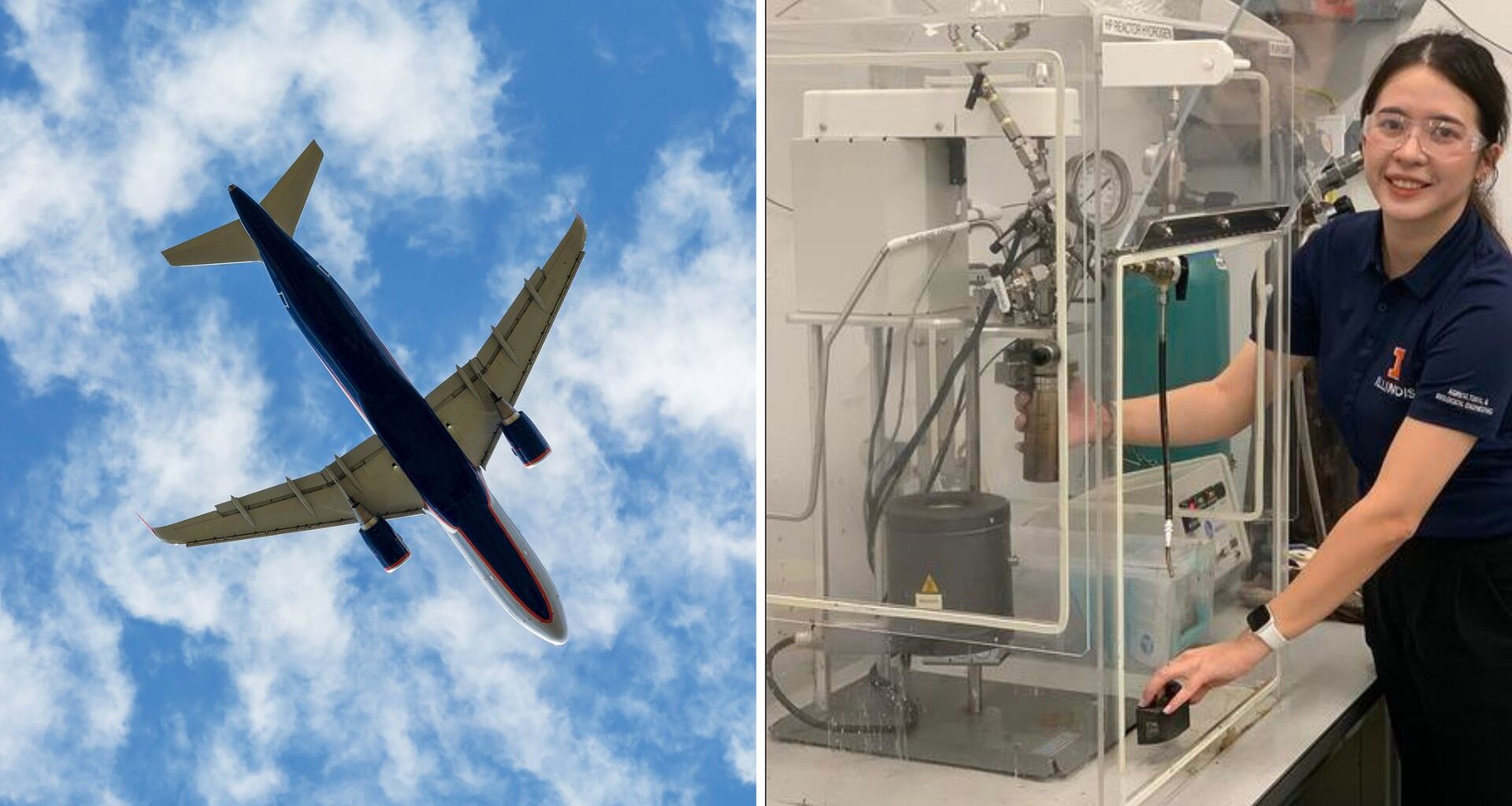A new process transforms food waste into sustainable aviation fuel (SAF) that meets industry standards.
Researchers at the University of Illinois Urbana-Champaign in the US developed a thermochemical conversion process that doesn’t require the resultant fuel to be blended with fossil fuels.
The development offers solutions to two major problems: food waste and greenhouse gas emissions from aviation.
The convenience of modern air travel comes at a high environmental cost, with jet fuel consumption being a driver of greenhouse gas emissions.
This development could aid the aviation industry’s goal of achieving net-zero carbon emissions by 2050.
“To meet the aviation industry’s goals to decarbonize jet fuel, we need many different renewable sources, and agriculture is going to play a critical role in terms of providing the feedstocks,” said Yuanhui Zhang, corresponding author, on October 30.
Two-step process
The research team used hydrothermal liquefaction (HTL) to transform food waste directly into biocrude oil.
After converting food waste into biocrude oil, the researchers employed a two-stage process to create sustainable aviation fuel.
They first removed simple impurities like moisture, ash, and salt.
Following this, catalytic hydrotreating was to eliminate unwanted elements (nitrogen, oxygen, and sulfur), leaving behind pure hydrocarbons.
This final step uses cobalt molybdenum as the most effective catalyst to refine the oil into pure hydrocarbons that meet jet fuel specifications.
The hydrotreating process was optimized by adjusting key variables, including temperature, catalyst and hydrogen loads, and retention time, to perfect the final fuel production stage.
“HTL basically mimics the natural formation of crude oil in the Earth. It uses high heat and pressure to convert wet biomass into a biocrude oil. The goal of this work is to upgrade that biocrude oil into transportation fuels that can go directly into existing energy infrastructure,” said Sabrina Summers, lead author.
Meets required aviation standards
The resulting fuel was then tested against the rigorous standards of the American Society for Testing and Materials (ASTM) and the Federal Aviation Administration (FAA).
Importantly, the SAF sample met all conventional jet fuel specifications, having successfully cleared both Tier Alpha and Beta prescreening tests.
It achieved this certification without needing any additives or blending with fossil fuels.
This development addresses the massive problem of food waste. Globally, more than 30% of all food — from farm to consumer — is wasted annually.
The wasted food adds to greenhouse gas emissions when it decomposes in landfills and wastewater treatment plants.
Large-scale recycling of this food waste could promote overall sustainability.
Moreover, the purification and refining process works with many types of biowaste, notably food, sewage sludge, algal bloom, swine manure, and agricultural residue.
It could potentially open a new pathway for fuel production.
The researcher highlighted the potential of this technology beyond jet fuel, noting it can be applied to other oils for Sustainable Aviation Fuel.
The technology has the potential to be scaled up for commercial production and could also be applied to create other materials, such as replacements for petroleum-derived compounds in plastics.
This approach shifts waste from landfills into a valuable product, directly supporting a more sustainable, circular economic model.
The study findings were reported in the journal Nature Communications.

